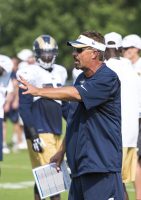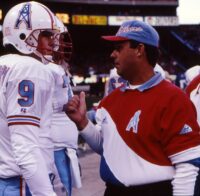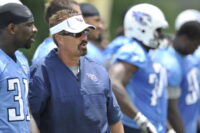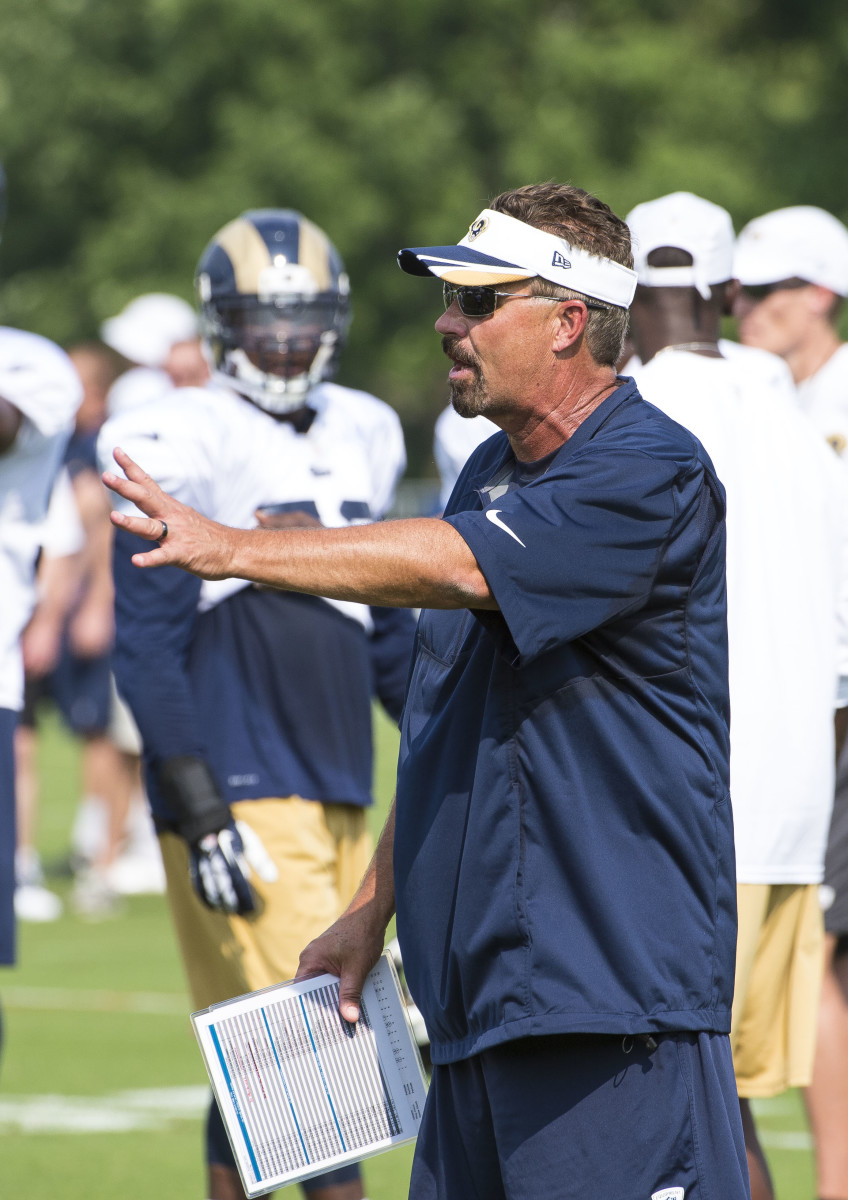Inductees
Gregg Williams
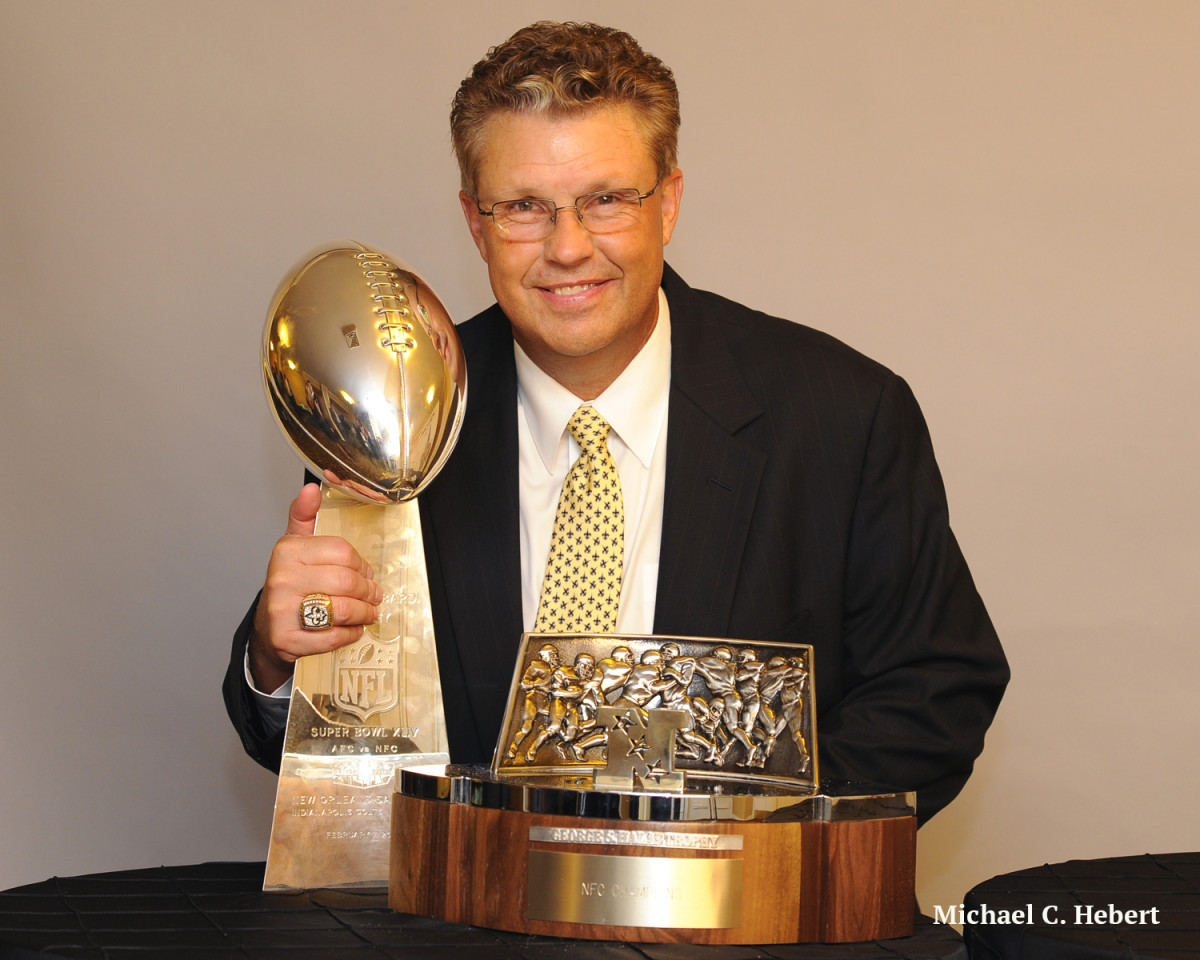
Born: July 15, 1958
Longtime National Football League defensive coordinator Gregg Williams certainly hasn’t forgotten his roots. Over the years, his foundation has gifted millions of dollars to school and youth athletics in his hometown of Excelsior Springs.
“I always wanted them to know they can do anything in life,” Williams said.
Williams is a prime example, having parlayed time as a small-town Missouri high school football coach into an NCAA Division I college job that led to what’s now 25 years in the NFL. His resume can now add the Missouri Sports Hall of Fame, which is inducting Williams among the Class of 2016.
Williams’ time in the NFL includes three years as a head coach of the Buffalo Bills and now 14 seasons as a defensive coordinator, including the past two with the St. Louis Rams. He has presided over five separate top five total defenses during his career: the Tennessee Titans (No. 1 in total defense in 2000); Buffalo Bills (No. 3 in 2011, No. 2 in 2003), Washington Redskins (No. 3 in 2005); and the New Orleans Saints (No. 4 in 2010).
Williams coached in New Orleans from 2009-2011, helping the Saints win the Super Bowl in January 2010, and also captured two division titles (2009, 2011). He was a coach with the Titans when they narrowly lost to the Rams in the Super Bowl in January 2000.
Looking back, Williams credits Excelsior Springs coaches Sam Brown (football), John Shepherd (basketball), Dick Michaels (baseball) and his coaches – Ron Taylor, Bruce Craddock and Sam Nugent – at what is now Truman State University, where Williams was the quarterback.
“I’m a person who grew up with a hard work ethic,” Williams said. “I’m a farmer’s son, a factory’s son. I never did any drugs in life. I have a beer on occasion. But I’m a competition-aholic.”
Football just sort of found Williams, who was probably a better baseball pitcher and basketball scorer than a quarterback. But football paid for college and helped pay the bills after graduation.
Williams’ first assistant football coaching job was at Excelsior Springs (1980-1983). But after the school didn’t promote him to head coach upon an opening there, he moved on to become the head coach at Belton High School. Talk about being in the right place at the right time. Three years later, a Belton graduate who went on to the University of Houston eventually recommended Williams to then-Houston coach Jack Pardee. Williams coached at the university two seasons.
Pardee then brought Williams to the NFL when he took the Houston Oilers job in 1990, and Williams eventually handled about everything, becoming one of the NFL’s first quality control coaches in overseeing little details. To this day, Williams is one of the few assistants who can say they coached just about every position. In 1993, when Williams was special teams coach, the Oilers had the No. 1-ranked special teams unit in the NFL.
“He was like a second father to me. He kind of took me under his wing,” Williams said of Pardee, who eventually agreed to move Williams to coaching defense. “I was learning defense from the guy who learned under (Pro Football Hall of Fame coach) George Allen.”
It was Pardee who guided Williams through his 20s, teaching the ways to handle stress of an NFL job and sharpening attention to detail. When the Oilers promoted Jeff Fisher to head coach, Williams was the only assistant he retained. Williams became the Titans defensive coordinator from 1997-2000, and still looks back fondly at the Rams-Titans Super Bowl.
“Even though we came up a yard short, it was a great game,” Williams said. “I’ve still never watched the coach’s film. But that game brought a lot of motivation.”
To Williams, his NFL longevity is a combination of work ethic, a feel for leadership and family support. He’s served as defensive coordinator for five organizations (Oilers/Titans, Redskins, Jaguars, Saints, Rams), worked with five different head coaches and enjoyed tons of success. His defenses played a combination of styles as Williams emphasized each player’s strengths.
Support was key from his parents, Faye and Ira Williams, as well as his children Blake, Amy, Chase and his wife, Dr. Erin Shannon, and children Maddoc, Kennedy, Hennesy, Lochlan, Teaghan and Raferty.
“All I ever wanted to be was a mentor to young men, especially those who played for me,” Williams said. “I found a way to deal with young men who had never learned to conform in life. I’ve provided structure, accountability and discipline. … If I wasn’t doing what I’ve been doing, I would be a doctor or warden of a penitentiary. I’ve been like a father to tons of difficult young men, and I’ve been blessed to have that leadership gene.”
